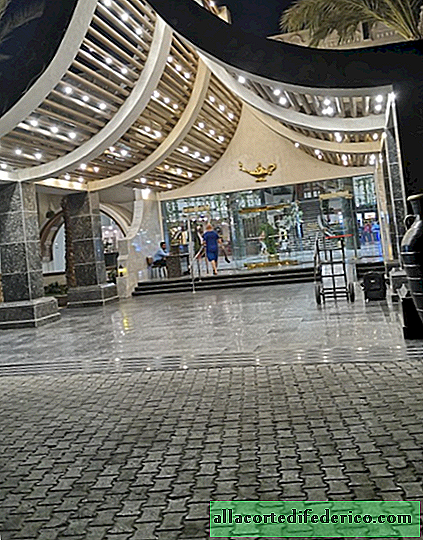Last port of destination: where decommissioned ships from all over the world depart
Sea transport today remains the main engine of trade and economic relations and provides the lion's share of world freight traffic. But sooner or later, the life of any marine vessel, whether it be an oil tanker or a cruise ship, is coming to an end, and the question arises of its disposal. Modern economic realities are such that the decommissioned ships are disposed of in the poorest countries of Asia, and how this happens makes us think a lot.

Large ships that are no longer in use are a complete headache for their owners. Towing and the disposal process itself in developed countries with high environmental standards and labor law costs a lot of money. Therefore, the majority of decommissioned ships depart for the shores of Bangladesh, India or Pakistan. Here no one monitors the observance of acceptable wages and the safety of workers, and spent fuel is discharged directly on the sandy beach.

All equipment suitable for further work, as well as valuable parts, are removed in advance, before being sent for recycling. Arriving at the reconstruction site, the ships undergo primary manual disassembly: all the interior decoration is removed, the remaining equipment is removed. Therefore, the most valuable thing at the time of arrival at the last destination is the hull itself. Dismantling of the hull is also carried out manually: workers, some of which are usually teenagers and children from 10 to 14 years old, cut the ship into smaller parts.

Meter by meter, the hull of the ship is sawn, and parts are taken away for remelting to metallurgical enterprises. This is a valuable secondary resource, which, for example, in India, covers up to 10% of the country's steel needs. And the city of Chittagong in Bangladesh, where about 80,000 workers work on disassembling decommissioned ships, provides its country with ferrous metals by 50%. The environmental situation on the Chittagong coast, where ships have been recycling for more than 50 years, is simply terrifying: the permissible concentration of such pollutants as lead or asbestos is exceeded by more than 100 times.

It takes several months to completely disassemble one ship. People work in inhuman conditions. Needless to say, such enterprises have low wages and high rates of occupational injuries and mortality. But here there is important stability, because every year at least 1000 ships are written off in the world. More than 90% of them are disposed of in five countries of the world: China, Bangladesh, India, Pakistan and Turkey.

In Turkey, the center for the analysis of ships is the city of Aliaga. Several years ago, in addition to the disposal of sea vessels, they began to deal with the dismantling of old oil platforms. And this despite the fact that Aliaga, located on the shores of the Aegean Sea, is a tourist center.
Chittagong in Bangladesh, Alang in India, Gadani in Pakistan - all these cities have turned into centers of environmental and humanitarian disaster. Against the backdrop of all this, one can only hope that the world community will sooner or later pay attention to the situation in the marine ship recycling centers and change it for the better.


















